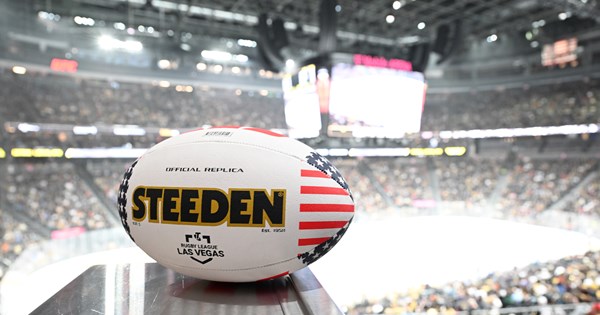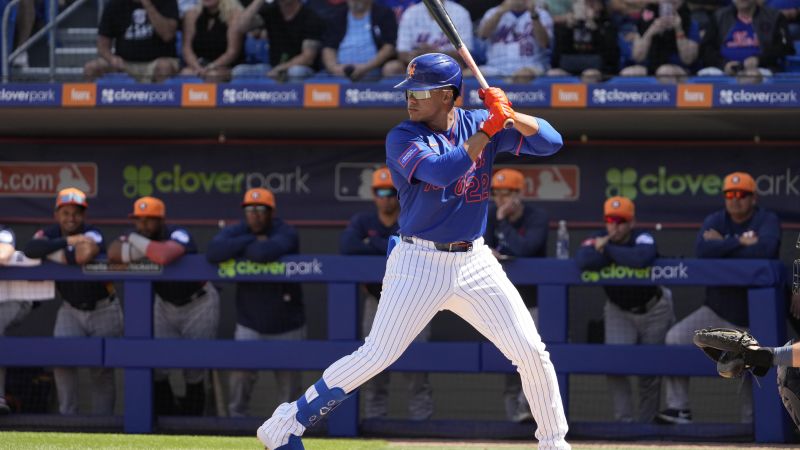How ‘American Sports Story’ star Josh Rivera tackled Aaron Hernandez
:max_bytes(150000):strip_icc()/Josh-Rivera-Aaron-Hernandez-091324-f40424521b034ea6b7bbb062329e400c.jpg)
Josh Rivera walks differently when he’s in New York City. He’s not necessarily conscious of it. It’s more a force of habit. “My girlfriend is funny with it,” Rivera says of Rachel Zegler, the actress he appeared with in West Side Story and The Hunger Games: The Ballad of Songbirds and Snakes. “She still sometimes teases me about it.”
The 29-year-old struts ever so slightly so that he looks more imposing, or at least gives off the vibe that strangers shouldn’t mess with him. It’s something that dates back to his high school days in Boulder, Colo. He played football as a teen, but he was also involved in choir and drama, including musical theater. On top of that, his family used to move around a lot, and he found himself adapting his physical aura to each different school clique or environment. “I don’t know if it works,” he says of his walk, “but it’s just what I find myself doing.”
The actor interrogated this New York swagger of his after landing the title role in FX’s American Sports Story: Aaron Hernandez, about the tight-end for the New England Patriots who was convicted of the murder of semi-professional football player Odin Lloyd. Like most professional athletes, the Hernandez of the new anthology series projects a machismo aura, which he often uses as a front to hide his sexual relationships with men. As with the real Hernandez, the character kills himself in jail after he’s outed in the media.
Thinking back to his walk, Rivera remarks, “I guess on some level everybody does some version of that. I knew some of what’s known about his relationship with being around these more masculine figures and him trying to emulate that. I tried to pull a little bit more from what it feels like to adapt to different environments and different scenarios.”
Eric Liebowitz/FX; Al Messerschmidt/Getty
There are a lot of layers to the role of Hernandez and the larger cult of sports that American Sports Story attempts to dissect. Led by frequent Ryan Murphy collaborators and executive producers Nina Jacobson and Brad Simpson, the first season tracks Hernandez’s private and public lives. We see him across 10 episodes as a kid living under the thumb of a father who punished weakness, as a teenage wunderkind athlete in a very private relationship with a boy named Chris (Jake Cannavale) while publicly dating his future fiancé Shayanna Jenkins (Jaylen Barron), as an entrant to the University of Florida where he played alongside Tim Tebow (Patrick Schwarzenegger) on the Gators, and as a man struggling with drugs and longterm effects from football-induced head trauma. All of this leads to the fateful moment when he murders Odin.
“This is our sport as a country,” Jacobson says of football. “We’re the only ones that are really into it. It’s a humongous part of the economy and of our identity. So [we wanted] to explore all of these themes within that, of the commodification of Black and Brown bodies largely, and all of the moments over the course of this story in which ‘Football Inc.’ might have done something differently with regards to this: a guy who was getting in trouble, who was showing signs of danger, but as long as that danger was on the field, it was excused off the field until it couldn’t be anymore.”
Rivera has a “little conspiracy theory,” as he puts it, for why he was cast. The actor worked with Jacobson and Simpson on the Hunger Games prequel film, in which he played Sejanus Plinth, once a mentor to a tribute in the games who was forced to become a Peacekeeper soldier in District 12. He had a shaved head for the Peacekeeper portion of the role, during which time Jacobson wanted him to listen to the Aaron Hernandez podcast Gladiator, from Wonderly and The Boston Globe — the same podcast the producers adapted for American Sports Story. “Then a couple weeks went by and I ended up getting an audition tape for it,” he recalls.
Michael Parmelee/FX
Rivera tried not to get too emotionally invested in the audition in the event he didn’t get the job, but once he did, he went full force on the research. “It was difficult for me to not care whether or not I got the job because, from an actor’s perspective, the more complex something is, the more interesting it is, the more questions you have to ask yourself, and the more diving you have to do into your own psychology, which to me is why I enjoy it,” he says.
Sign up for Entertainment Weekly‘s free daily newsletter to get breaking TV news, exclusive first looks, recaps, reviews, interviews with your favorite stars, and more.
Initially, the fear set in. Rivera was (and still is) very mindful of walking the line between imitation and emulation. He wanted the latter, not the former, with his performance. Imitation, he says, doesn’t benefit the story. “It’s quite a daunting prospect to feel like you have to be somebody else that somebody can very readily fact check,” Rivera explains. “At a certain point, I have to choose a characterization, which is really hard and it’s a big risk. You don’t want to show any disrespect or anything, but I felt comfortable and confident with the amount of material I was given and with a team that I was around — but it was overwhelming, initially. I won’t lie.”
What set him at ease was the approach of showrunner Stuart Zicherman (The Americans, The Shrink Next Door). The season is an adaptation of the Gladiator podcast, and every adaptation comes with certain creative liberties. “It gave me a lot of freedom when the showrunner [said] we’re touching on a lot of stuff that’s not known, we have to tell the in-between,” Rivera continues. “That gave me a little bit more freedom to take the essence of this character, use the public appearances that I see, use the differences in the intonations of the way this person might talk to his family versus with his friends, and then use that to propel my own characterization. It’s true, it is kind of a tough line [to walk] because you don’t want to be bound by what everybody else knows about somebody. It’s a different story. It’s an adaptation, it’s not a documentary.”
Rivera was also tempted to dust off those football skills he had growing up. For the high school-set sports scenes, the producers cast background actors who appeared smaller than their star to emphasize the size of Hernandez on camera. “I did a lot of that football in the high school [scenes] and I kind of got a little big for my britches there,” Rivera admits. When it came time to film the college-set sequences involving the Gators, “Everybody was massive, dude,” he recalls. “It made me feel like, ‘What happened?!'” Perhaps it’s because of his NYC walk and his experience switching between different environments as a kid, but Rivera adapted yet again.
“‘I’m going to do the stunts, I’m going to do the football.’ And I got my butt kicked, man,” he remembers, laughing it off. “I think I did approximately maybe four or five setups and I was like, ‘I can’t, there’s no way.’ Football’s pretty hard. Who knew?”
American Sports Story: Aaron Hernandez premieres on FX and Hulu Sept. 19.
Related
Rugby League Las Vegas 2025: Everything You Need to Know
Rugby League in Las Vegas 2025 will be bigger, bolder and better, with more games, more teams, more nations and more opportunities for travelling supporters to
Meet The Mandalorian’s breakout star Jake Cannavale, son of actor…
Jake Cannavale is not your typical Hollywood legacy kid. Sure, he’s got that famous last name and a family tree that boasts some of Hollywood’s biggest lege
Juan Soto hits 426-foot homer in first at-bat for New…
CNN — Juan Soto’s first at-bat for the New York Mets gave some indication as to wh
American teen wins snowboard slopestyle gold in Calgary | CBC…
Teenage American snowboarder Oliver Martin swears he broke no laws Saturday in celebrating his first World Cup medal — a gold — in men's snowboard slopestyl










